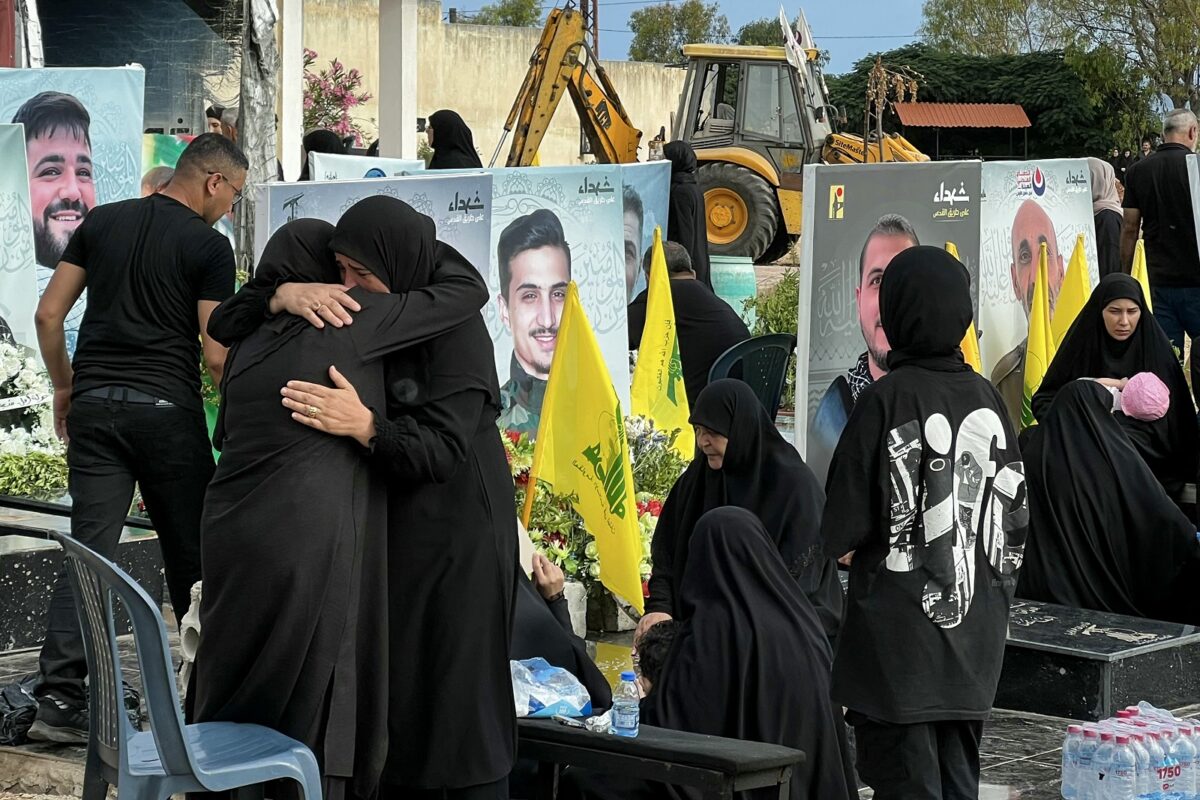
Lebanon’s ever-spiralling economic crisis, political instability and war in the south means that celebrating Eid has become an afterthought for many with thousands of families displaced and 44 per cent of the population living in poverty
“For the past 5 years we have not been enjoying Eid Al-Adha properly, it was a combination of an economic crisis, COVID-19, the port explosion and now war,” said Rima Abdallah, a Lebanese from Khiam village in south of Lebanon living in Kuwait who was not able to make it to her bombed village to celebrate Eid Al-Adha.
“Families would gather, share meals, exchange gifts, visit relatives and friends, sacrifice animals, and distribute the meat to family, friends and those in need: but with the ongoing threatened security conditions in the country, such traditions and festivities are difficult to carry, especially in the south,” added Rima.
The continuous stress of war and economic hardship takes a toll on mental health. For many, the spirit of celebration is dampened by anxiety, grief, and uncertainty about the future.
There are more than 46,000 internally displaced people (IDP) in Lebanon who have moved to nearby shelters or to locations further north. The joy and spirit of Eid Al-Adha was absent in southern Lebanon as the exchange of attacks between Hezbollah and the Israeli military is ongoing. Towns and villages are empty as families are displaced in other regions of Lebanon and have not returned to the south to celebrate with their relatives as they usually do.
Moreover, the economic crisis and the rising inflation of basic goods in Lebanon with the heavily dollarized market also exacerbate the difficulty of enjoying the Muslim celebration with the traditional rituals such as sacrificing animals, exchanging gifts and filling home tables with typical sweets.
“Everything is painfully expensive nowadays. Every trip to the shops feels like a battle, where I have to calculate what I can afford, how much money I have, and how much things cost,” Zahraa Kahlil told NOW, a displaced mother of three from Ayta ash-Shab, south Lebanon, now residing in Beirut with her sister.
The impact of the economic crisis
The economic crisis has plunged many into poverty, unemployment, and financial insecurity, severely limiting their ability to celebrate Eid as they once did.
Many families struggle to afford basic necessities, making it impossible to take part in the traditional feasts, gift-giving, and charitable acts of the holiday. These economic hardships have also strained the social fabric of Lebanese society, making family gatherings financially unfeasible and driving people apart.
While the majority of the population struggles to afford basic necessities, Eid getaway packages are still prominently advertised everywhere, targeting those with access to fresh dollars.
An ongoing war
Rima expressed that “the world understandably focuses intensely on Gaza and the war’s devastating consequences there. Unfortunately, many overlook that Lebanon, right next to Palestine, has been experiencing its own unofficial conflict with Israel.”
Since October 8, one day after Hamas launched its attack against Israel – which then began bombing Gaza -, Israel and Hezbollah have been exchanging fire across Lebanon’s southern borders.
As families from the south seek refuge in safer areas further north, communities across the entire country are feeling increased pressure amidst Lebanon’s prolonged economic hardships.
The continuous clashes are severely disrupting livelihoods. According to Al Jazeera, the restaurant sector has seen an 80 per cent decline in business since October 7. Tourism, which accounts for 20 percent of Lebanon’s GDP, has also been significantly affected.
Several countries, including Australia, France, Germany, the United Kingdom, and the United States, have not only advised their citizens against visiting Lebanon but have also recommended those currently in the country to depart while commercial flights remain available, citing the volatile situation along the border.
Farah Mezher, a sociology teacher and sociopolitical commentator told NOW: “In south Lebanon, and Lebanon as a whole, the celebration of Eid al-Adha has been significantly affected by the ongoing war and the severe economic crisis.” For Farah, with rising unemployment and a high poverty rate, many families are struggling to meet their basic needs. The financial strain makes it difficult to afford festive meals, new clothes, and other customary expenditures associated with Eid al-Adha.
Farah added that “many families in south Lebanon have been displaced due to conflict, living in temporary shelters or refugee camps. These conditions make it challenging to observe the traditions of Eid Al-Adha properly.” Due to disrupted livelihoods in the south of Lebanon, therefore, it is clear that people have a further strained financial capacity to celebrate Eid Al-Adha traditionally.
“The war exacerbated economic difficulties, inflating prices of essential goods, including food and livestock needed for the traditional sacrifice. Many families struggle to afford the costs associated with the celebrations,” said Farah.
Ongoing conflict increases the risk of violence, making it dangerous for people to gather in large groups for communal prayers and celebrations. Fear of attacks can deter people from attending public gatherings, including mosque services and community events.
Eid Al-Adha, however, remains a time of spiritual reflection and community despite the significant challenges posed by war and economic crisis in south Lebanon. While the ways in which people celebrate may change, the core values of sacrifice, charity, and solidarity continue to be upheld, providing a sense of hope and resilience amidst adversity.
Rodayna Raydan is a Lebanese-British journalist. You can follow her on Twitter @Rodayna_462
The views in this story reflect those of the author alone and do not necessarily reflect the beliefs of NOW.








